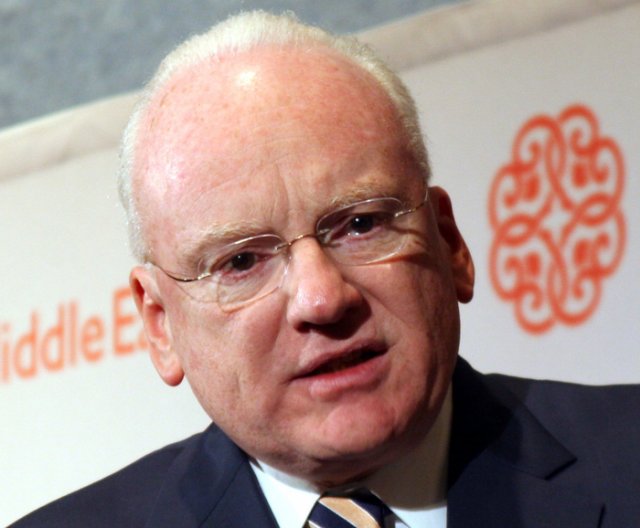
Another former national security official has spoken out forcefully against the FBI's quest to get Apple to write code to unlock the iPhone 5c used by San Bernardino mass shooter Syed Farook. Richard Clarke served as the National Security Council's chief counter-terrorism advisor to three presidents (George H.W. Bush, Bill Clinton, and George W. Bush) before becoming George W. Bush's special advisor on cybersecurity. He told National Public Radio's David Greene today that "encryption and privacy are larger issues than fighting terrorism," taking issue with the FBI's attempts to compel Apple's assistance.
Clarke added that if he was still at the White House, he would have told FBI Director James Comey to "call Ft. Meade, and the NSA would have solved this problem…Every expert I know believes that NSA can crack this phone." But the FBI wasn't seeking that help, he said, because "they just want the precedent."
Clarke explained that the FBI was trying to get the courts to essentially compel speech from Apple with the All Writs Act. "This is a case where the federal government using a 1789 law trying to compel speech. What the FBI is trying to do is make code-writers at Apple, to make them write code that they do not want to write that will make their systems less secure," he said. "Compelling them to write code. And the courts have ruled in the past that computer code is speech."
As counter-terrorism chief for the NSC, Clarke noted, he faced barriers in what he could do. "I also operated within limits. Within the US government, we decided long ago that there are limits in what we're going to do in the war against terrorism." He noted the Obama administration's reversal on the prior administration's policy on torture and compared torture to the violation of civil liberties that the FBI's efforts could set precedent for. "To make the FBI's job easier, we could, at the far extreme, put ankle bracelets on everybody so that we know where everybody was all the time. That's a ridiculous example, of course, but encryption and privacy are larger issues than finding terrorism."
Clarke noted that Comey and the Justice Department were not getting support in their case from the defense and intelligence communities. "The Justice Department and the FBI are on their own here," he said. "The FBI director [Comey] is exaggerating the need for this, and the Attorney General [Loretta Lynch] is letting him get away with it."
reader comments
130